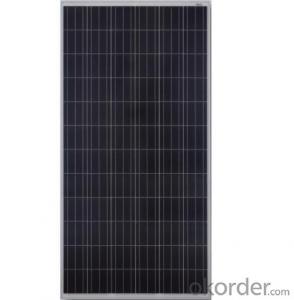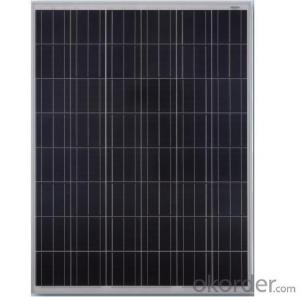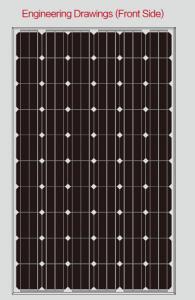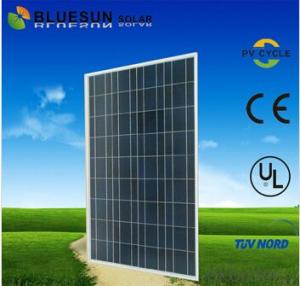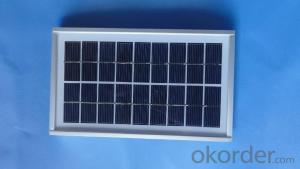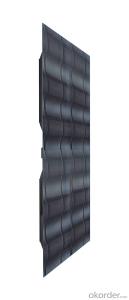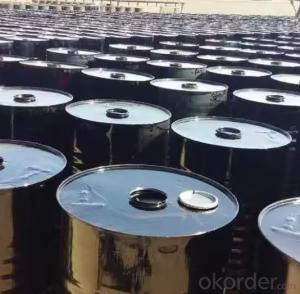Mono panel JAM6(R) 72 305W
OKorder Service Pledge
Quality Product, Order Online Tracking, Timely Delivery
OKorder Financial Service
Credit Rating, Credit Services, Credit Purchasing
You Might Also Like
JAM6(R)72 305-325W FULL SQUARE MONOCRYSTALLINE SILICON MODULE
Key futures:
Full square monocrystalline modules designed for commercial and solar farm grid-tied applications.
high power output and highest conversion effciency of 16.77%
Anti-reflective and anti-soiling surface reduces power loss from dirt and dust;
outstanding prformance in low-light irradiance environments;
excellent mechanical load resistance:certified to wothstand high wind loads (2400pa)and snow loads(5400pa)
high salt and ammonia resistance certified by TUV NORD
Datasheet:
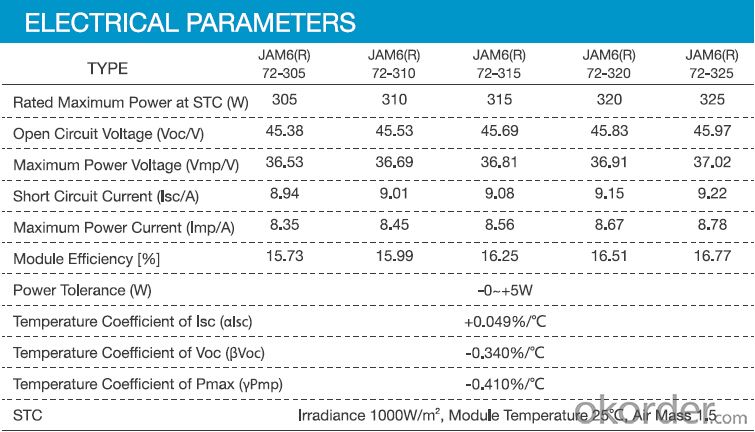
- Q:The average solar panel produces 0% of the energy that is put into it. What is happening to the other 90%? Is it being reflected or is it being obsorbed by materials that are not a part of the solar cell? Is it possible to one day have near 00% efficient solar cell technology?
- Mainly due to reflection (micro-structuring of the surface helps here), incorrect wavelength of the light (the panel is only sensitive to a certain wavelength range) and heating of the panel (due to the incident light/thermal radiation). The remainder is either reflected or absorbed by the cell and re-emitted as heat. Absorption by e.g. the glass panel is slight (a few %), as is absorption/reflection by the necessary surface contacts (again, a few %). Higher efficiency is possible, but brings its own drawbacks (like higher cost). You could now go into two directions: - high efficiency cells/panels with (likely) higher cost and complexity for mounting (like lens or mirror based systems, aka concentrator systems, that increase the light level on the cells in order to increase efficiency) - low cost systems (cheap as dirt) that will allow you to cover every surface of a building, efficiency is less important if you can compensate by a much larger covered area As to the efficiency limit: there is a theoretical limit (from thermodynamics - don't ask me how or why) in the range of 30...40%, depending on which publication you want to believe in.
- Q:I heard that solar energy has a lot of advantages but are there any drawbacks in using the solar panels?
- There okorder /... ). These systems provide relatively high efficiency, since they don't convert sunlight to electricity, and they can be used to supplement or replace energy used for space and hot water heating - some of the largest residential uses of energy. Like any other appliance or household system, solar panels used to collect heat will require periodic maintenance. Hope this helps.
- Q:Can solar panels be used to heat water?
- Yes, solar panels can be used to heat water. Solar water heaters use the energy from the sun to heat water, typically through the use of solar thermal collectors. These collectors absorb solar radiation and transfer the heat to a liquid, which is then circulated to heat the water. This renewable and environmentally friendly method can be used for residential and commercial purposes to provide hot water.
- Q:Can solar panels be installed on historic homes or buildings?
- Yes, solar panels can be installed on historic homes or buildings. However, it is important to consider the specific regulations and guidelines in place for historic preservation in each jurisdiction. In some cases, there may be restrictions on the placement and design of solar panels to ensure they do not detract from the historical integrity of the property. It is advisable to consult with preservation authorities or experts to determine the feasibility and appropriate approach for solar panel installation on historic structures.
- Q:How about using Solar Panals to provide the electrical power to separate the H2 from the O? H2 would be fed into the engines carburator like a gas/air mixture ratio, but H2/air mixture ratio instead. How would you control the exact measurements?
- Currently solar panels are rated at about 5 percent efficiency. That means that about 85 percent of the solar energy that is falling on it, is wasted. Electrolysis is also about 67 percent efficient. So the TOTAL amount of solar energy you would have converted into hydrogen is 67 percent of 5 percent. Using my calculator that comes out to: about 0 percent total efficiency. About 90 percent of your solar energy gets wasted in the process. A better alternative to solar panels would be solar powered sterling generators. Sterling engines are EXTERNAL COMBUSTION engines, like the old fashioned steam engine, and can be run off any heat source - including the sun. Heat from the sun is focused using parabolic mirrors, and the efficiency of a sterling engine / generator combination is rated at about 30 percent. Your TOTAL efficiency - both solar sterling and electrolysis combined - would be around 20 percent. If you are dead set on using hydrogen? Even though there are better alternatives? Such as alcohol? Then I would suggest storing it in titanium dioxide pellets. This way you can store the hydrogen, without it being in danger of exploding. You can ALSO ram a hydrogen container like this into a solid brick wall. Once again? Without fear of an explosion. Numerous studies have been conducted on this. As for controlling the exact measurements? Nothing in the air-fuel ratio of a car - - or the timing - which you are also going to have to change - needs to be exact. A good enough approximation will do. As for how you get your measurements? You need to compare the density of gasoline vapor with hydrogen gas. A comparison of the molecular weight of gasoline - - as compared to the molecular weight of hydrogen - should get you started in the right direction for this.
- Q:Can anyone give me a simple but informative explanation on how solar panels produce electricity/power? Thank you!
- This forum of solar panel is for electric You also get a diffrent type of solar panel this type of panel has a liquid that flows through it and is heated up by the same photovoltaic cells but is ran through the water tank to keep the water warm
- Q:Can solar panels generate electricity at night?
- No, solar panels cannot generate electricity at night as they rely on sunlight to convert into electricity.
- Q:solar energy
- Building a good solar panel can take you up to a week. To make a solar panel you will need detailed guide including schemes and so on.... There are many guides at the net, but they're not free so you'll have to invest some cash. Typically such guide might cost at about $40 - $90 One of the best is Earth4energy: If you are interested you can read detailed review of this product here:
- Q:How do solar panels affect my electricity bill?
- Solar panels can significantly reduce your electricity bill by producing clean and renewable energy from the sun. By generating your own electricity, you can offset the amount of power you need to purchase from the grid, resulting in lower monthly bills. Additionally, if your solar panels generate more electricity than you consume, you may even receive credits or payments from your utility company.
- Q:okay so i want to know if solar panels shine. ------(MY Q'S ABOUT BLINDNESS DOESN'T MEAN PERMANENT OMG I CAN'T SEE! BLIND BUT THAT WE JUST CANquot;T SEE AT THE MOMENT BECAUSE OF THE LIGHT.)------------------------------like if/when they face the sun is there a glare to the people around?-if there is would the person have to look directly at it? -Could it reflect off of other objects and cause temporary blindness or just shine light in person's eyes?-if there were windows and mirrors near the solar panel would it affect a person's sight?-and if it did for how long would it hurt or take affect?-and is this physics? like-solar panels and how they work is that physics or some other category?
- Solar panels reflect less sun than a piece of window glass, and people aren't harmed by the sun's reflection off windows. Also, solar panels tend to be tilted more or less directly toward the sun, so the light that they reflect is back at the sun, not down into the street or yard where people are. Those huge power tower concentrating solar thermal plants have a brilliant light reflected off the boiler. But those are put out in the desert, away from people.
1. Manufacturer Overview |
|
|---|---|
| Location | |
| Year Established | |
| Annual Output Value | |
| Main Markets | |
| Company Certifications | |
2. Manufacturer Certificates |
|
|---|---|
| a) Certification Name | |
| Range | |
| Reference | |
| Validity Period | |
3. Manufacturer Capability |
|
|---|---|
| a)Trade Capacity | |
| Nearest Port | |
| Export Percentage | |
| No.of Employees in Trade Department | |
| Language Spoken: | |
| b)Factory Information | |
| Factory Size: | |
| No. of Production Lines | |
| Contract Manufacturing | |
| Product Price Range | |
Send your message to us
Mono panel JAM6(R) 72 305W
OKorder Service Pledge
Quality Product, Order Online Tracking, Timely Delivery
OKorder Financial Service
Credit Rating, Credit Services, Credit Purchasing
Similar products
New products
Hot products
Related keywords
